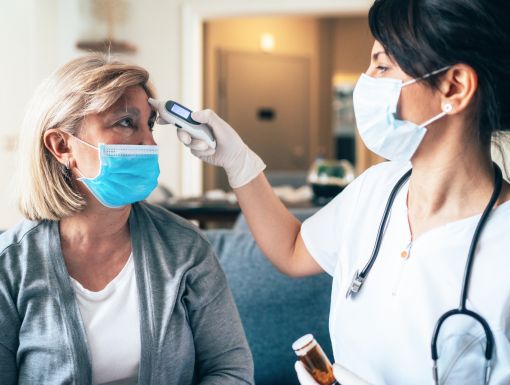
Mu COVID Variant: What You Need to Know
The World Health Organization (WHO) recently identified the Mu COVID variant (also known as B.1.621) as a variant of interest. The Mu variant was first detected in Colombia in January 2021 and was designated as a variant of interest by WHO on Aug. 30, 2021.
A “variant of interest” means that Mu has been identified to cause significant community transmission in multiple countries, namely Colombia and Ecuador. In other words, it’s a strain scientists are keeping an eye on.
The next step up from “variant of interest’’ is a “variant of concern.’’
While the Delta variant continues to be the dominant strain in the United States, Dr. Antony Fauci, White House chief medical adviser, has said the United States is monitoring the Mu variant.
Is the Mu variant more dangerous?
The Mu variant has increased in prevalence in some South American countries, but the Delta variant continues to be the most prevalent and most concerning strain in the United States, especially in areas of low vaccination rates like Louisiana and Mississippi.
What can people do to protect themselves from new variants?
We already know how to protect ourselves against COVID-19 and have had plenty of practice with these strategies. Now, more than ever, we all need to do the following:
- Receive the COVID-19 vaccine. Variants are expected. The best way to slow the emergence of new variants is to reduce the spread of infection by taking measures to protect yourself, including getting a COVID-19 vaccine when available. Vaccines help prevent hospitalization and death from COVID variants. And immunocompromised people should discuss with their medical provider getting a third dose of the Moderna or Pfizer vaccine.
- Wear a face mask, even if you’ve had the vaccine, to protect yourself and others. Why? While the vaccine has been shown to greatly reduce side effects and hospitalization for those that are fully vaccinated and become infected, there is a possibility that they could still be contagious and spread COVID to others, including immunocompromised people and children who may not be able to receive the vaccine yet.
- Practice physical distancing
- Use good hand hygiene
- Avoid large gatherings, especially in areas of high transmission rates
- Stay home when you are sick
- Quarantine and get tested if exposed to a positive case of COVID-19
Will the vaccine work against the variants?
Scientists are studying how existing COVID therapies and vaccines will work against the Mu variant. But the vaccines have proven effective against variants of similar characteristics to the Mu variant. The best course of action is still to plan on getting the vaccine as soon as you can.
Stopping a pandemic requires using all the tools available. The benefits of the vaccine outweigh the risks of forgoing immunization.
The CDC, in collaboration with other public health agencies, such as the Louisiana Department of Health, is monitoring the variants closely. As new information becomes available, Ochsner Health, and the CDC, will provide updates.
Learn more about the COVID vaccine: ochsner.org/vaccine

